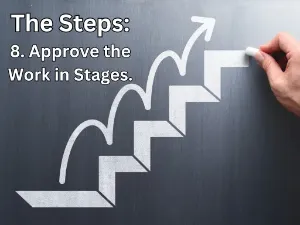Writer Mike Branom recently wrote a campaign concession speech for a client. That client provided some thoughts about what to put in the speech, which resulted in Mike (who is an expert in public relations) telling the client: “No, no, no! That’s not what to say.” Later on, I asked him to write a blog post and he offered to pen his thoughts on what to say — and what not to say — in a concession speech. Here ya go! Enjoy!
By- Mike Branom
You’re a politician and it’s the night of Election Day. As results from the polls trickle in, you’re mentally rehearsing your victory speech, considering how you want your swearing-in to go, already planning how to enact your policies…
Wait, the networks just called your race? And you… lost??
Now what???
Well, your next public move is one you either dreaded or hadn’t even considered: Delivering your concession speech, because it’s time to get off the stage. There are two reasons why losing politicos deliver concession speeches. The high-minded explanation is because such remarks signal an end to the fight, meaning the winner now can get to work on the people’s business. The other motive is personal: Everyone is about to stop caring about you, so better say your piece before they shut off the microphone.
But what do you say? Ooh, that’s the tricky part. You’d like to go out with your head held high, still hoping to convince people you’re the better choice. But you can’t sound bitter or attack the winner, or, even worse, not say anything at all, because there’s no faster route to ignominy.
To help with remarks you never hope to deliver, here are some general words of advice…
Thank everyone
Campaigns are not solo efforts. Yes, your name and face are everywhere — but there were people behind the scenes getting your name and face before the voters. Maybe they stuffed envelopes or walked neighborhoods and knocked on a thousand doors, or perhaps they were powerbrokers in their own right, introducing you to various kingmakers. Either way, thank them. Make them think their hard work was valued. If you crush their spirits, they may not want to work on a campaign again — and you’ve just made life harder for the next candidate of your party.
You can mention the score, but only if it was close
If you fell short by 100 votes out of 1 million cast, then you’re justified in pointing out your victorious opponent wasn’t preferred by a significant number of voters. In fact, if you make your case effectively, you can deny the winner a mandate. After all, the electorate was split nearly 50-50.
But if you got waxed, stomped, beaten like a rented mule, etc., then don’t breathe a word about the margin. The results speak for themselves and you raising the issue will only serve to underscore how badly you lost. And no one you’re trying to reach wants to be reminded of that.
You can mention your opponent…or not
If you lost a primary election, then it behooves you to say nice things about them if you want to remain welcome in your party. In a general election, though, it’s optional to say who beat you rather than the passive-voice you were beaten. Just because you’re smiling when delivering your speech, it doesn’t mean you have to be happy about it.
Why you ran
Your concession remarks should make some reference to your platform because this is your last chance to do so. Even in a blowout, a graceful way of framing: “We brought attention to critical issues, such as.…”
One voice
What’s the line? “Success has a thousand fathers; failure is an orphan.” You lost, so you get up there and speak. There’s also another reason for doing this: If you’ve run at the head of a ticket, you don’t want your No. 2 sticking shivs in you as an act of self-preservation. It’s been known to happen. Call it the Palin Principle.
Optics, optics, optics
If you’re delivering your remarks in person, then take a close look at how everything will look. If your standing in front of a backdrop that repeats in bold letters “VICTORY!”, you can bet the photogs will get a shot of you, the loser, with that in the background. In that vein, do not bring your family on stage. Most likely, someone will be crying, so save them the mortification of having their tears captured for posterity. Also, please make sure your audience is happy to see you; if they’re not, ooh, will that come through. I’m reminded of a line I read after Mitt Romney’s campaign-closing speech: “The crowd applauded as for a golfer who sank a tricky 12-footer to save par on 18, closing his 3-over round of 75.”
(By the way, Mitt delivered a graceful, upbeat concession address in 2012, and now he’s about to be elected as a senator — an achievement made impossible had he gone out with guns blazing.)
There’s no way around the pain of conceding the election, so make your statement short, quickly ripping off the Band-Aid. But keep in mind, you’ve got the rest of your life to wear the tag of “Lost Election,” so following these guidelines will keep things from getting worse.
Not only do we provide the writing expertise but we also can advise on the wisdom of the approach. Given Mike’s PR background and exceptional writing skills, he can enhance your personal or corporate image, while keeping you from making big mistakes.













